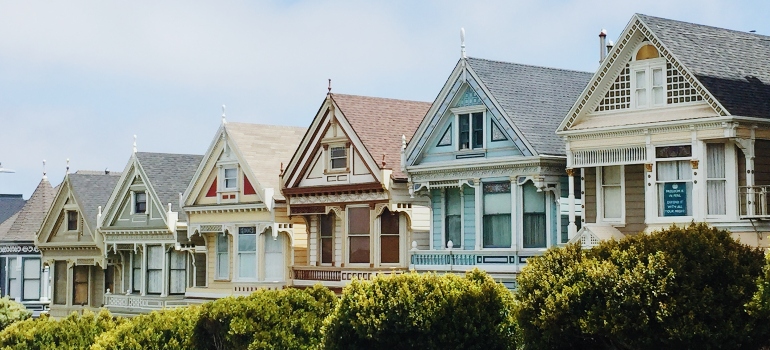Moving from Tulsa to Oklahoma City signifies more than just a physical move; it is a transformative shift in lifestyle and the pursuit of new opportunities. Nestled in the heartland of America, these two vibrant cities in Oklahoma boast distinct charms that beckon residents to embrace their unique offerings. Whether you’re seeking a change of scenery, career advancement, or a fresh start, this relocation opens doors to a wealth of experiences. In this article, Verified Movers delve into the enriching transition from Tulsa to Oklahoma City, uncovering the nuances of this dynamic shift and illuminating the boundless potential that awaits those who dare to explore this remarkable opportunity.
Moving Expenses and Distance Between Tulsa and Oklahoma City
The journey from Tulsa to Oklahoma City spans approximately 100 miles, making it a relatively short distance to bridge between these two bustling cities. Whether you choose to drive or opt for public transportation, the commute time averages around two hours. The well-connected highway system, including the Turner Turnpike and Interstate 44, ensures a smooth and efficient transition.

Understanding the associated expenses of long distance moving companies in Tulsa is crucial for effective budgeting. The cost of relocating from Tulsa to Oklahoma City will depend on several factors, such as the volume of belongings, chosen moving services, and individual preferences. While it is advisable to obtain personalized quotes from reputable moving companies, a rough estimate for a typical 2-3 bedroom household move ranges between $500 to $1,500.
Create the budget for your move from Tulsa to Oklahoma City
To ensure a smooth and financially sound move, it is essential to create a comprehensive budget. Start by outlining the key expenses, including packing materials, transportation costs, and potential fees associated with hiring long distance moving companies in Oklahoma City. Additionally, consider any necessary changes to utilities, such as disconnection and reconnection fees, and allocate funds for potential unforeseen expenses.
Careful planning and research can help identify cost-saving opportunities. For instance, you might opt for a DIY approach by packing your belongings and renting a moving truck instead of hiring a full-service moving company. Moreover, don’t forget to allocate funds for potential deposits or fees related to securing new housing arrangements in Oklahoma City.
The Cost of Living Differences
As of the latest available data, the median house prices in Oklahoma City tend to be slightly higher than those in Tulsa. In Oklahoma City, the median sale price hovers around $271,000, while in Tulsa, it is approximately $235,000. As for median rent, the costs in both cities are relatively comparable. In Oklahoma City, the median rent for a standard one-bedroom apartment typically ranges from $800 to $900 per month, while in Tulsa, it falls within a similar range of $750 to $850 per month.

Other aspects, such as groceries, transportation, and healthcare, generally align closely between the two cities. Ultimately, while there may be slight variations in certain expenses, both Tulsa and Oklahoma City offer affordable living options and a reasonable cost of day-to-day necessities.
Job Opportunities in Oklahoma City and Tulsa
Tulsa’s economic landscape is characterized by a diverse range of industries, contributing to its stability and growth. The city has a strong presence in sectors such as aerospace and aviation, energy, manufacturing, and healthcare. Major companies and organizations in these fields provide numerous job opportunities and foster innovation. Tulsa also boasts a burgeoning entrepreneurial ecosystem, with support for startups and small businesses. The average salary is around $66,000 per year, while the unemployment rate is 2.9%.
Oklahoma City’s economy has experienced robust growth in recent years, driven by diverse industries and a favorable business climate. The city has a strong presence in sectors such as energy, aerospace and defense, healthcare, and technology. Energy companies, in particular, play a significant role in Oklahoma City’s economy, with a focus on oil and gas exploration and production. The city also boasts a thriving job market, with a multitude of opportunities in finance, manufacturing, professional services, and hospitality. With an average yearly salary of $65,000 and an unemployment rate of only 2,7%, finding a job after your relocation with top movers in Tulsa should be stress-free.
Commute Times in Oklahoma City vs. Tulsa
Tulsa has a well-connected network of highways and roads, which helps facilitate commuting within the city and to surrounding areas. However, like any metropolitan area, traffic congestion can be a factor during peak commuting hours. It is advisable to plan your commute accordingly and consider alternative routes to avoid heavily congested areas. Additionally, Tulsa offers public transportation options such as buses and a limited light rail system. The average commute is only 20 minutes.

In Tulsa, commuting primarily relies on personal vehicles due to the city’s layout and suburban areas. Carpooling and ridesharing services are also popular choices for commuters seeking to reduce costs and alleviate traffic congestion. On the other hand, Oklahoma City offers a more extensive public transportation system, including buses and a growing downtown streetcar network. The city’s public transit infrastructure provides viable alternatives for those who prefer not to drive or wish to reduce their environmental impact. However, Oklahoma City has a higher average commute of 21.4 minutes.
Best Neighborhoods in Oklahoma City
Oklahoma City, with its vibrant atmosphere and diverse neighborhoods, offers an array of options for individuals and families seeking the ideal place to call home. They are one of the main reasons for moving from Tulsa to Oklahoma City. From historic districts brimming with charm to modern developments with contemporary amenities, there is a neighborhood to suit every lifestyle. Before hiring the top movers in Oklahoma City, let’s explore some of the best neighborhoods in Oklahoma City:
- Downtown: If you crave a dynamic urban lifestyle, Downtown Oklahoma City is the place to be. With a mix of residential and commercial spaces, this area is known for its lively atmosphere, cultural attractions, and bustling nightlife.
- Midtown: Midtown is a trendy and walkable neighborhood filled with unique shops, art galleries, and locally-owned eateries. It offers a blend of historic homes and modern apartments, attracting a diverse mix of residents.
- Nichols Hills: If you desire an upscale and exclusive neighborhood, Nichols Hills is a top contender. Known for its luxurious homes, tree-lined streets, and manicured lawns, this enclave offers a suburban feel within the city.
- The Paseo Arts District: For those who appreciate arts and culture, the Paseo Arts District is a haven. This historic neighborhood is home to a thriving arts community, with galleries, studios, and performance spaces dotting the streets.
Moving from Tulsa to Oklahoma City: Explore the Sooner State’s Capital
As you settle into life in Oklahoma City, you’ll discover a city brimming with opportunities and a welcoming community. With diverse neighborhoods catering to various lifestyles, this vibrant city offers the perfect place to call home. Moving from Tulsa to Oklahoma City brings the advantages of a thriving economy, affordable cost of living, and a rich cultural scene. From job prospects in thriving industries to family-friendly amenities and a strong sense of community, this city has it all. Embrace the adventure, build connections, and enjoy the benefits of a fulfilling life in the heart of Oklahoma City.



